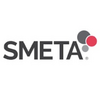
Sedex Members Ethical Trade Audit (SMETA)
About (Sedex Members Ethical Trade Audit (SMETA))
The Sedex Members Ethical Trade Audit (SMETA) is a widely recognized social audit methodology and framework that helps organizations assess and improve their ethical trade practices. SMETA was developed by Sedex, a global membership organization focused on driving responsible and sustainable supply chains.
SMETA audits are conducted to evaluate suppliers' compliance with ethical trade standards and labor practices. The audits cover a range of areas including labor rights, health and safety, environment, business ethics, and management systems. The goal is to ensure that workers are treated fairly, working conditions are safe, and that environmental and ethical standards are upheld.
Key features of SMETA audits include:
Scope: SMETA audits are applicable to organizations of all sizes and sectors. They can be conducted in any country and are designed to meet the requirements of global brands and retailers.
Audit Methodology: SMETA audits are conducted by qualified auditors who follow the methodology outlined in the SMETA Best Practice Guidance. The audits include site visits, document reviews, worker interviews, and engagement with management.
Pillars of Audit: SMETA audits focus on four key pillars: labor standards, health and safety, environment, and business ethics. These pillars cover a wide range of issues such as child labor, forced labor, working hours, wages, health and safety practices, pollution control, waste management, and anti-corruption measures.
Continuous Improvement: SMETA audits emphasize the importance of continuous improvement. They encourage organizations to identify areas for improvement and develop action plans to address any non-compliance or areas of concern.
Transparency: SMETA audits promote transparency and accountability by sharing audit reports on the Sedex platform. This allows Sedex members, including brands and retailers, to access and review the audit findings of their suppliers.
By undergoing SMETA audits, organizations demonstrate their commitment to ethical trade practices, worker welfare, and responsible supply chain management. SMETA audits provide valuable insights and help drive improvements in social and environmental performance. They also enable organizations to meet customer and stakeholder expectations, enhance their reputation, and gain access to global markets that prioritize ethical sourcing.
It's important to note that SMETA audits are conducted by certified auditors and follow the specific guidelines and protocols established by Sedex. Organizations seeking SMETA certification should engage with an accredited certification body or auditor to ensure compliance with the SMETA standards and requirements.